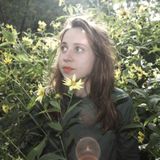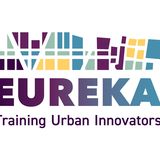Storytelling is increasingly becoming a must-use tool in Urban development. It helps to engage communities and different stakeholders through sharing their stories and ambitions. The stories of the city’s past and present residents shape the identity of the area. Many of urban development projects struggle with oversimplification, gentrification, lack of community involvement and local identity. How can we tell a compelling and inclusive story of an urban development project while delicately balancing between marketing and authentic representation? Together with researchers, practitioners and designers, we will explore the best ways to shape stories and guide better future urban developments.




This program is part of EUREKA project. European Urban Regenerators Knowledge Alliance (EUREKA) is a three-year project set to create a multidisciplinary curriculum, designed jointly by universities, cultural practitioners and policy-makers , for a rising professional profile of urban innovators. The project will identify needed skills and develop training that addresses the current job market’s demands across Europe. EUREKA is a platform to co-design training that responds to real-life challenges of urban transformation and provides skills and tools to make our cities more sustainable and inclusive.
About the speakers
Kas Woudstra is trained as an academic researcher and recently finished his Ph.D. projects. He loves to take on complex design and research issues, likes to relate to people with all sorts of backgrounds, and strives to create design concepts that work for everyone. He works as researcher and designer at Reframing Studio. In his PhD project, he examined how participatory methods can be used in design and research practices of medical technologies. Before that, he studied science and technology studies in Maastricht (an interdisciplinary research field that focuses on how technological and scientific developments are related to social and cultural phenomena), and political science in Amsterdam.
Simion Blom is a political scientist specializing in inequality and the Smart City Strategy. With 12 years of experience in local politics, he’s known for initiatives like the National Slavery Museum and Amsterdam apologies, aiming to address historical injustices. Simion’s focus on Community Wealth Building aims for a fairer economy in Amsterdam’s districts. Through Bureau Bijlmer Renaissance & Futurism, he advocates for a revitalized Bijlmer neighborhood and collaborates on creative housing solutions.
Nina Karim van Oort works as an independent documentary maker and photographer. In small stories, with a soft spot for the underdog, she investigates how people try to keep themselves going in moments of doubt and unrest. She believes that we need each other much more than we admit. Nina is part of the Bajesdorp , a sanctuary where old Bajesdorp residents and new enthusiasts are creating a cooperative and sustainable community. For her, the Bajesdorp housing cooperative is an example for a different kind of future; less individualistic, less ego, more together.
Anouk Reintjens is a development manager at AM , a nationally operating area and project developer. AM focuses on designing and developing inspiring and sustainable living environments. Anouk has been working in area development, with specialism in inclusive cities for more than 20 years with a special focus on Amsterdam region. She recently published a book with a plea for better mixing of generations, called Meer Generatie Wonen (in Dutch). The book discusses solidarity and how we can reincorporate intergenerational living in the built environment. A free digital copy can be ordered here .








